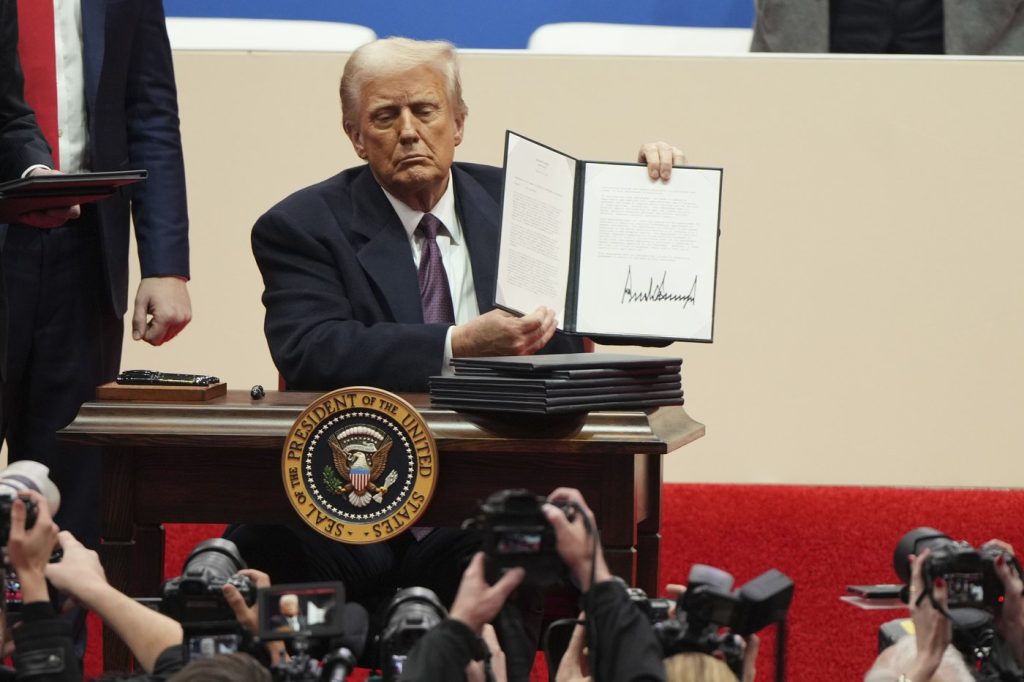WASHINGTON – President Donald Trump is utilizing emergency powers in a manner unmatched by any of his predecessors, which has led to significant scrutiny around the implications of his actions. While the president asserts that the United States is rebounding from various calamities, his administration's frequent invocation of emergency powers raises questions about constitutional limits and the extent of executive authority.
Trump's administration has employed emergency powers to impose significant tariffs, deploy troops to the southern border, and alter environmental regulations. An analysis indicates that 30 out of Trump's 150 executive orders have referenced some form of emergency authority, suggesting a higher rate of usage than recent administrations. This approach not only transforms the traditional use of presidential powers, but it also positions the executive branch to bypass Congressional authority in favor of a more direct pursuit of his political agenda.
Ilya Somin, representing five U.S. businesses that challenged Trump’s tariff policies in court, remarked on the "enormous scale and extent" of Trump's emergency power usage, pointing out that it surpasses that of any modern president. The businesses allege that Trump overstepped his authority by declaring an economic emergency to justify the tariffs, which Congress traditionally controls under the Constitution. An appeals court is currently reviewing this ruling.
The legal battles highlight concerns surrounding the potential misuse of emergency powers in the absence of genuine threats. Elizabeth Goitein from the Brennan Center emphasized that while past presidents have somewhat limited their emergency powers, Trump's extensive use of these means puts these boundaries at risk. Rep. Don Bacon, a Republican from Nebraska, remarked on the necessity for Congressional governance over trade matters, indicating that Trump's actions represent an abuse of emergency authority.
In defense of Trump's assertive use of presidential powers, White House Press Secretary Karoline Leavitt stated that the president is rightfully employing emergency powers to address the failures inherited from the previous administration. She cited issues such as open borders, international conflicts, and economic challenges as justifications for Trump's actions.
Trump has notably referenced the International Emergency Economic Powers Act of 1977 as the basis for many of his tariff decisions. The law limits presidential power to situations of "unusual and extraordinary threats" to national security, foreign policy, or the U.S. economy. The Associated Press has found that Trump has invoked this act 21 times, compared to 14 times by George W. Bush and 21 times by Barack Obama during their respective first terms of office amidst critical national challenges.
Additionally, Trump has employed the Alien Enemies Act, an antiquated law, to facilitate the deportation of Venezuelan migrants based on alleged threats posed by their government. However, the claims made by Trump regarding the collaboration of the Venezuelan government with criminal organizations have not been substantiated by intelligence officials.
Throughout U.S. history, Congress has periodically delegated emergency powers to the presidency, acknowledging the need for swift action in crises. Emerging from this delegation are 150 legal powers accessible only after an emergency declaration, allowing for actions traditionally restricted by Congress. Both Democratic and Republican presidents have exploited these powers, leading to significant consequences. For instance, Biden's recent attempt to cancel federal student loan debt under a national emergency declaration was ultimately rejected by the Supreme Court.
Trump's previous national emergency declaration for border wall construction also serves as a noteworthy example of the growing tensions between Congress and the executive branch. Lawmakers made attempts to nullify his declaration, but could not achieve the veto-proof majority needed to counteract it. John Yoo, a former Justice Department official, criticized the trend where presidents are utilizing emergency powers not as a response to unanticipated crises but to assert authority where Congress has been inactive.
Supporters of Trump, like Vice President JD Vance, maintain that the current international climate necessitates such emergency measures. Vance pointed to threats from foreign governments as validation for Trump's actions, indicating that risks associated with critical supply chains constitute a legitimate national emergency.
While efforts have been made by both sides to restrict presidential emergency powers, a recent bipartisan proposal to automatically terminate emergency declarations after 30 days was not advanced. As the legislative climate remains quiet on revising emergency powers in light of Trump's return to office, concerns persist about the implications for democracy and the separation of powers in the U.S. government.










